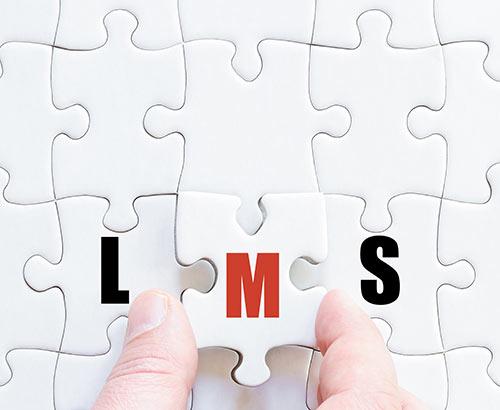What is an LMS?
What is an LMS
An LMS, or a Learning Management System, is a software application that supports learning in an organization. Learning Management Systems are not just for online training. You can use an LMS to manage and track all types of training, including offline.
LMS software allows an organization to manage curriculum, deliver and manage evaluations, and track the performance of learners over time. They can also be used to generate revenue by selling learning programs online.
A key feature of an LMS is the ability to provide detailed reports on both learner performance and the performance of your learning programs. And when you are selling your training programs, the ability to report on the financial performance of your program is critical as well.
Who uses a Learning Management System?
Learning Management Systems have been traditionally used by educational institutions. However, over the last few decades, many other types of organizations have begun to use LMSs as well, including:
- Corporations, both small and large, from any industry (healthcare, banking and insurance, life science, manufacturing, sales, etc.)
- Associations
- Government agencies
- Non-Government and Non-Profit Organizations
The main features of an LMS
Learning Management Systems serve multiple purposes, including employee training, compliance assurance and knowledge capture. Their primary role, however, is to ensure that all employees have the knowledge and skills needed to perform specific tasks to an established and documented standard of performance. An LMS has 4 primary functions:
01Manage learners
02Deliver and organize curriculum
03Assess learners
04Track and report
01.Manage learners
An LMS lets you control who has access to your curriculum. There are a number of ways you can let people into your LMS. You might want to:
- Allow anyone who is interested to set up an account through a self-registration process.
- Restrict access to only your employees.
- Create accounts one at a time or bulk-load learner data.
- Automatically activate (and deactivate) accounts by connecting your LMS to another system like an HRIS or ERP.
- Sell your courses and use an eCommerce gateway to restrict access to only those that have paid for the courses they have selected.
An LMS will also have a series of roles that you can use to control access to various features of the system. At the most basic level, there are Learners and there are Administrators, but most often there are a number of administrative roles that allow you to control which administrator can perform which functions on the system.
02.Deliver and organize courses
Top Learning Management Systems support multiple types of learning, including: eLearning, in-person workshops, webinars and downloadable or physically shipped resources like manuals or video resources. Some LMSs can even link out to third-party training providers and track and manage training completed outside the organization.
An LMS allows you to organize a variety of learning activities into learning paths that are assigned to individuals or to groups. These learning paths guide learners through a structured learning program.
03.Assess learners
Evaluations are an important part of a learning program. You can evaluate learning in a number of ways.
- You can use online tests. Online tests can be simple multiple choice exams that are automatically scored by the system, or they can include long-answer or essay questions that are marked by an instructor.
- Evaluations also include on-job skill checks or practical observation of a learner performing a task in the field.
- In some cases, evaluations might be provided by another organization and you simply upload the results into your LMS.
These evaluations, along with the rest of your curriculum, form part of a learning path.
04.Track and report
A Learning Management System tracks learning progress, performance and evaluation results, and provides a certificate or some other form of recognition to reward success.
There are two other things that are very important in a Learning Management System:
- The ability to track the performance of all the learners participating in learning events, and
- The ability to generate useful reports on learner performance. Good Learning Management Systems have robust and flexible reporting options.
Finally, if there is revenue associated with your learning program, tracking eCommerce activity becomes an important function of a Learning Management System as well.


